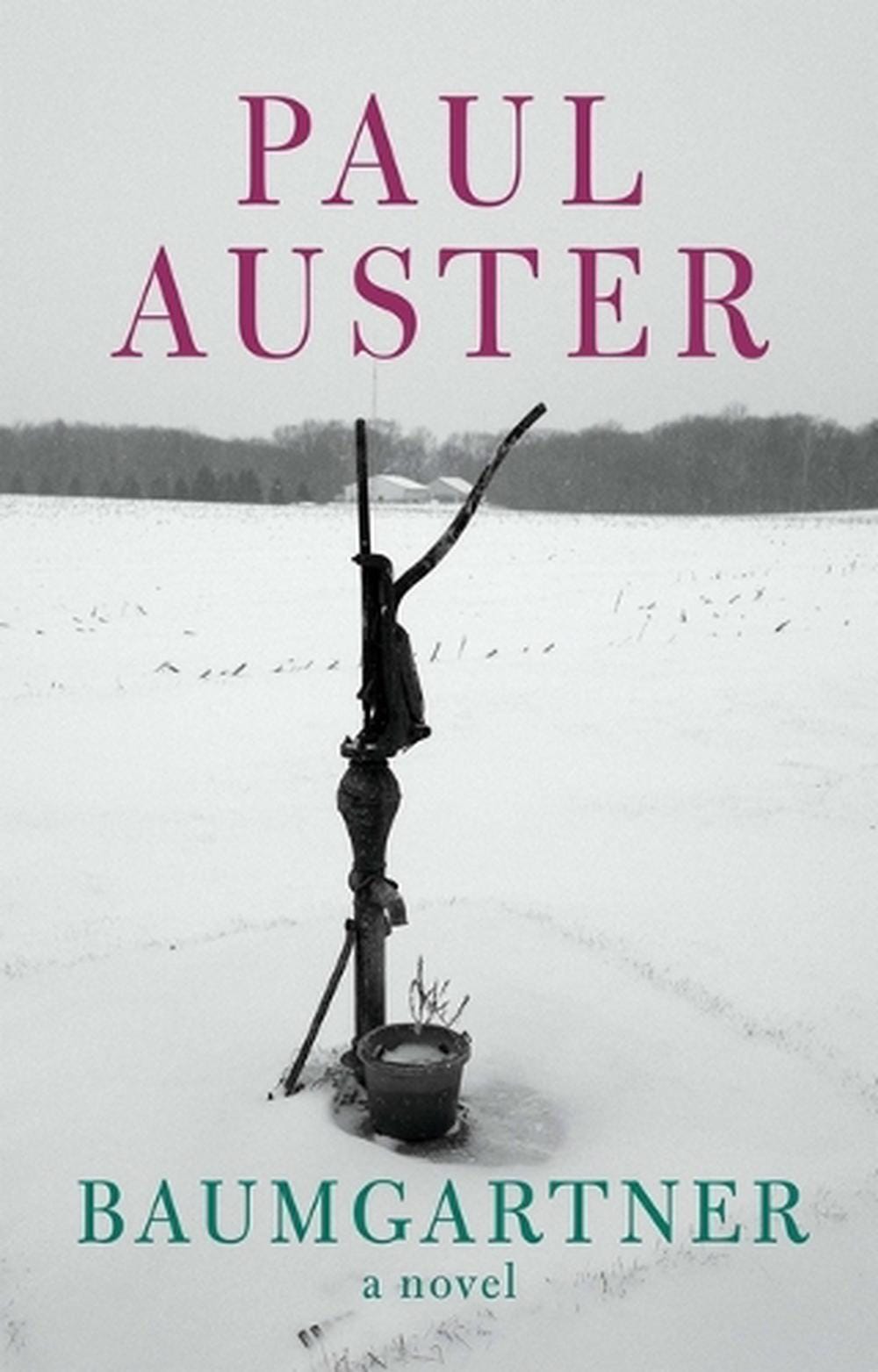Philosopher meets fiction: Auster’s Baumgartner
How could this not be a novel of ideas? Paul Auster’s protagonist in this 2023 novel is a philosophy professor, 70-something, retiring from Princeton University. Sy, Seymour, or S.T. Baumgartner, depending on who’s listening, is a phenomenologist. His dissertation, many years ago, was on Merleau-Ponty, a philosopher who, like Baumgartner, worries about whether perception is reality.
In Baumgartner’s case, that worry also concerns his recollections and imaginings of his dear wife, dead some 15 years, who still inhabits his brain and perhaps the house they once owned together. He is reading and re-reading the papers she left behind: poems left unpublished, comments on their lives together. Nothing much happens in the novel’s 202 pages, indicated visually by the complete lack of quotation marks for the bits of dialogue that intrude upon the third-person narrator’s account of exterior events and interior state of Baumgartner’s psyche.
But just what is the idea – what are the ideas – that this novel projects? Baumgartner’s rationalism is interrupted by rationalizations. He loves his long-lost Anna Blume, a love that if anything intensifies as he comes to love, Judith, a woman rather younger than himself, a woman who was once a friend and even protégé of Anna. Judith declines the offer of marriage that Baumgartner can’t quite bring himself to make.
What is the relationship between rationality, imagination and love? How does each, how do all, relate to Baumgartner’s growing realization that old age has arrived and is settling into the spare bedroom upstairs where he is writing a book of popular philosophy, employing an extended metaphor of the mind-body problem through the vehicle of a driver and car. He finds old age in the kitchen, where he fails to phone his sister, gets interrupted by a friendly stranger who has come to read the meters, even while Baumgartner forgets to remember to collect the book he needs to cite, which he has left somewhere downstairs.
I don’t apologize for the length of a couple of these sentences, not when Auster uses much longer ones – with great effect – to project the complexity of the situation Baumgartner sees himself in, as the mundane elements of daily life impede both his writing and his memories – are they memories, or something more present and real? – of his beloved.
I’ve written before (Nordberg, 2024, 2023) about how the term “novel of ideas” has morphed. Once it applied mainly to works that exploit existing ideas and enact them: the social criticism of George Eliot, the politics of George Orwell, John Steinbeck, Ayn Rand. But now it has stretched to embrace ones that explore the uncertainties of states of mind and body, much as philosophy deals with the problems of being in a seemingly unstructured or unknowable universe.
The book Baumgartner puzzles over what’s real (ontology), how we know and whether we do (epistemology), and what’s the right thing to do (ethics), while its protagonist shows – through his actions and inactions – that it’s all Greek to him, even though he’s a philosophy star. Signs of a fading memory, from the first pages of the book, set a context that lets the reader know that all this philosophizing may not matter much longer, and so the longing for the loved and departed other fills the empty space that death has left and leaves. (And like several of Auster’s other works, this one has a protagonist closely related to someone called Auster.)
Is love the solution to the puzzle? The resolution of the tensions? I won’t spoil the story by recounting how it all ends. It’s lovely. And lovingly told.
The book was a present from my son, Greg, who knows my soft spot for the hard edges of Auster’s writing. Thanks!
Nordberg, D. (2024). Enacting and exploring ideas in fiction: The Overstory and The Portable Veblen. New Writing: The International Journal for the Practice and Theory of Creative Writing, 21(1), 73-93. doi:https://doi.org/10.1080/14790726.2023.2222098. It’s free to access.
Nordberg, D. (2023). Enactment or exploration: Two roles for philosophy in the novel of ideas. Philosophy and Literature, 47(1), 108-127. doi:https://doi.org/10.1353/phl.2023.a899681. The manuscript version, not behind a paywall, see https://eprints.bournemouth.ac.uk/36300/.


